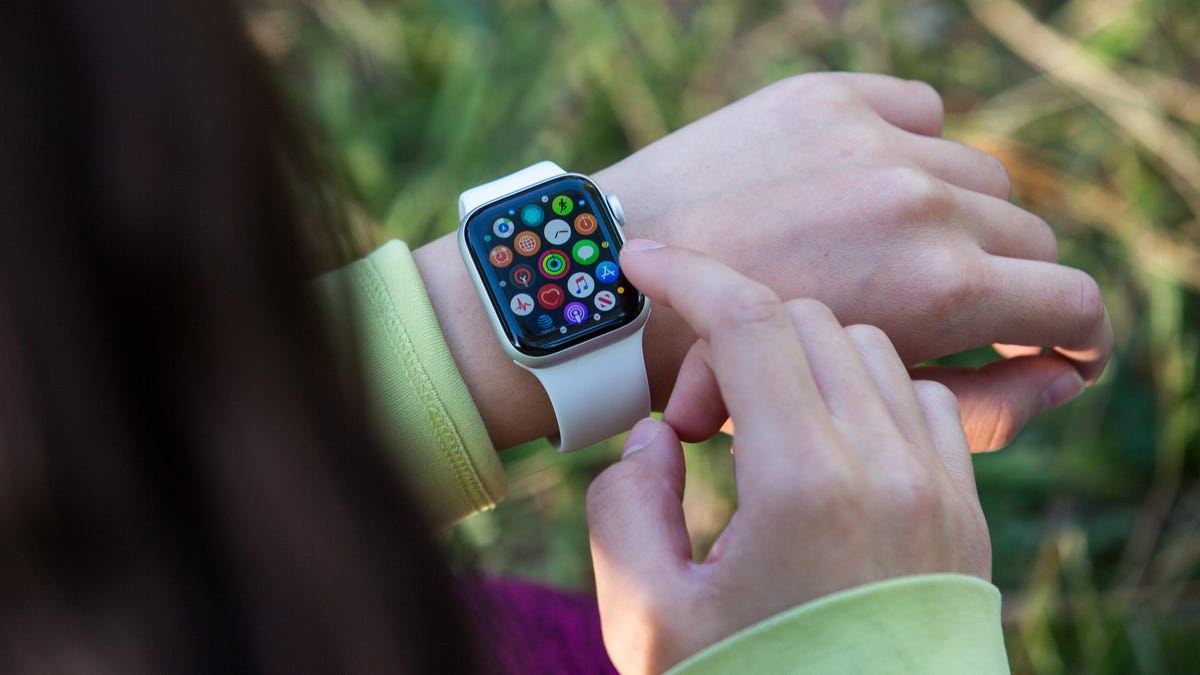WatchOS 7: Apple Watch will soon be able to measure your fitness level as you age
WatchOS 7, due to arrive this fall, brings new metrics that can reveal a lot about your overall health and can monitor fitness levels as you age.

The Apple Watch may be able to predict how healthy or unhealthy you are and keep you in check as you age. WatchOS 7, the next version of Apple's wearable software due to arrive this fall, will bring a new set of mobility metrics to the Watch. (You can try the public beta of WatchOS 7 now, too, but we don't recommend doing so on your main device.) They could provide a snapshot of a person's physical and cardiovascular fitness, and with the help of a physician, detect more serious health conditions.
Mobility, or functional capacity as it's known in the medical world, is one of the best indicators of overall health and longevity. Mobility decreases as we age, but it can also be impacted by other factors such as illness or injury.
"Preserving or improving functional capacity is one of the most important things we do as physicians," says Dr. Nauman Mushtaq, an Interventional Cardiologist at Northwestern Medical Group.
There are many ways to improve mobility metrics, some as simple as increasing activity levels, while others can involve more complex medical procedures.
The Apple Watch will use motion sensors like the accelerometer and gyroscope, along with advanced algorithms, to provide a series of data points associated with mobility. These include low range VO2 max (which measures maximum oxygen consumption), how fast you can go up and down stairs, and an estimate of how far you can walk in six minutes, which doctors refer to as the six-minute walk test.
Other data points, such as step length and double support time (which measures a person's gait) will be tracked by the paired iPhone running iOS 14 . All this information will then appear in a new Mobility section of the Health app on the iPhone. And it's not retroactive, so you'll only see data collected after installing the updates. The value is that it's able to collect information over time, and not just during one visit to the doctor's office.
Both the six-minute walk test and the VO2 max test traditionally require patients to be assessed by doctors in a clinic, hospital or lab. In the case of VO2 max, the patient wears a mask that analyzes oxygen levels while on a treadmill or bike. The Apple Watch will require no extra effort on your part to measure mobility.
A traditional VO2 Max test conducted in a lab.
"It seems unlikely that accelerometers and PPG sensors alone [that are in the Apple Watch] can capture all of the nuances of medical tests, and therefore should not be seen as replacements," says Dr. Geoff Tison, a cardiologist and assistant professor of cardiology at University of California in San Francisco. "But if it is well validated and with low enough error, the ability to passively monitor these metrics in large numbers of people without complex equipment could be valuable," he added.
These numbers on the Health app may not mean much to the average user, but when monitored over time with the help of a physician, they could provide real-time feedback on how your body is responding to treatment, whether it's a new exercise regime, medication or surgery. It can even warn users of serious underlying conditions. According to Mushtaq, sudden changes in mobility can be associated with anemia, lung disease or asthma.
He thinks insurance companies or Medicare could eventually use these types of metrics to assess whether or not to cover certain procedures, such as joint replacements, based on the expected improvement in functional capacity.
But even after WatchOS 7 has rolled out to users later this year, it may take a while before these metrics become widely accepted by the medical community in place of existing tests. It took two years and a pandemic for the FDA to clear the ECG feature on the Apple Watch for remote patient monitoring, for example.
The public version of WatchOS 7 is expected to launch alongside iOS 14 for the iPhone this fall and will only be available on the Apple Watch Series 3 or higher. The update also includes a new sleep-tracking feature, hearing health notifications and better fitness tools. Read more about WatchOS 7 here.

